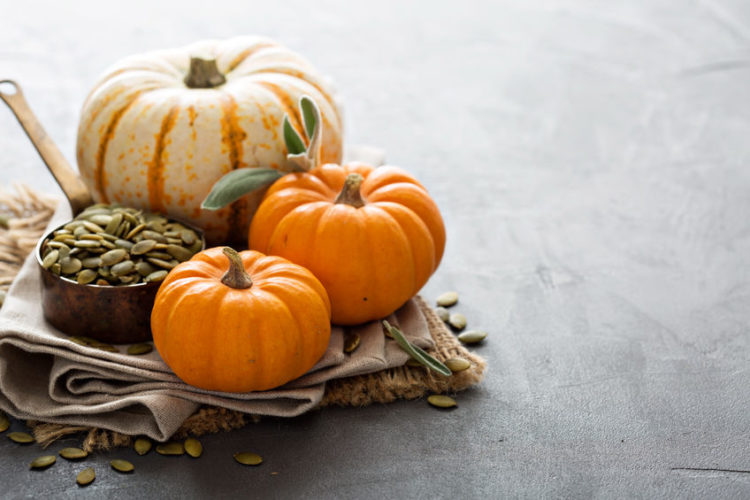By Sean Zucker –
Every Halloween, people flock to pumpkin patches to select a new canvas to carve their yearly masterpiece. They may even celebrate afterward with some pie made of scraps and remains. But while pumpkins are undoubtedly an iconic fall staple, there is good reason to grab them in one form or another year-round due to their chocked health-building benefits.
Obviously, when it comes to pumpkins, the big orange jobs that people use for Jack-O’-Laterns are the ones that come to mind first. But there are more than a dozen types of pumpkins and subspecies grown. Better yet, virtually all are edible, although the smaller the pumpkin the better and more distinct its flavor, according to The Spruce.
Regardless of type, pumpkins almost always are packed with tons of health benefits like nutrients and vitamins, while being incredibly low in calories. Since it is largely water (about 95% so), one cup of cooked pumpkin contains only 49 calories. It does, however, contain nearly 250% of the daily recommended amount of Vitamin A, which is crucial to maintaining healthy vision and ensuring the normal function of your immune system and internal organs. With 19%, 10% and 11% of the daily Vitamins C, E and B2, respectively, pumpkin borders on being an organic multivitamin supplement, even containing 3 grams of fiber and high levels of magnesium, phosphorus and zinc.
Thanks to its antioxidants, Vitamin C and an insane amount of Vitamin A, pumpkins have been proven to help support a healthy immune system. The antioxidants and Vitamin C alone are recognized tools for improving overall immunity by warding off illness and improving recovery time. The large hit of Vitamin A helps the body fight infections, viruses and infectious diseases. WebMD even suggests repurposing it into an oil to help fight various bacterial and fungal infections.
According to the Maurer Foundation for Breast Cancer Education, eating pumpkin may also help reduce the risk of breast and other cancers. As with all fruits and vegetables, pumpkin is a great source of fiber and those who consume adequate amounts of it are at a significantly lower risk, 11%, of developing breast cancer compared to those who do not.
Recent studies have even begun to link pumpkin consumption with combating obesity and helping to prevent diabetes. Last year, Tianjin Agricultural University in China reported that a study of mice found regular consumption of pumpkin over an 8-week period showed promise in fighting Type II diabetes. This is likely due to pumpkin’s high levels of magnesium, a critical nutrient in preventing and controlling diabetes.
As diabetes is often linked with obesity, it is no surprise that pumpkins have also been found to promote weight loss. According to Heathline.com, pumpkin is considered a nutrient-dense food, meaning it’s incredibly low in calories despite being loaded with nutrients. With just under 50 calories per cup and a good source of fiber, pumpkins have the ability to suppress your appetite with minimal ingestion.
Their kitchen applications are not limited to the traditional delicious but very sweet pumpkin pie served up at Thanksgiving. Pumpkins can be used for soups, unsweetened breads, pastas, hummus, pasta, chilis, smoothies and more. Country Living goes so far as to identify more than 60 recipes that go well beyond pie.
All this, of course, begs the question of pumpkin availability. Since pumpkin seeds are planted in the warm weather, fresh pumpkins are traditionally only available in fall when the weather starts to cool down. Thankfully, canned, unsweetened pumpkin is always available at virtually any food store. An increasing number of supermarkets and specialty food stores also are stocking frozen pumpkin chunks that can be the basis for almost any recipe. Not satisfied? It is easy enough to freeze pumpkins picked in the fall use in the summer, winter or spring thanks to All Recipes.
Bottom-line? Regardless of the season, pumpkins are ready to offer up a basket of tasty nutritional benefits.












